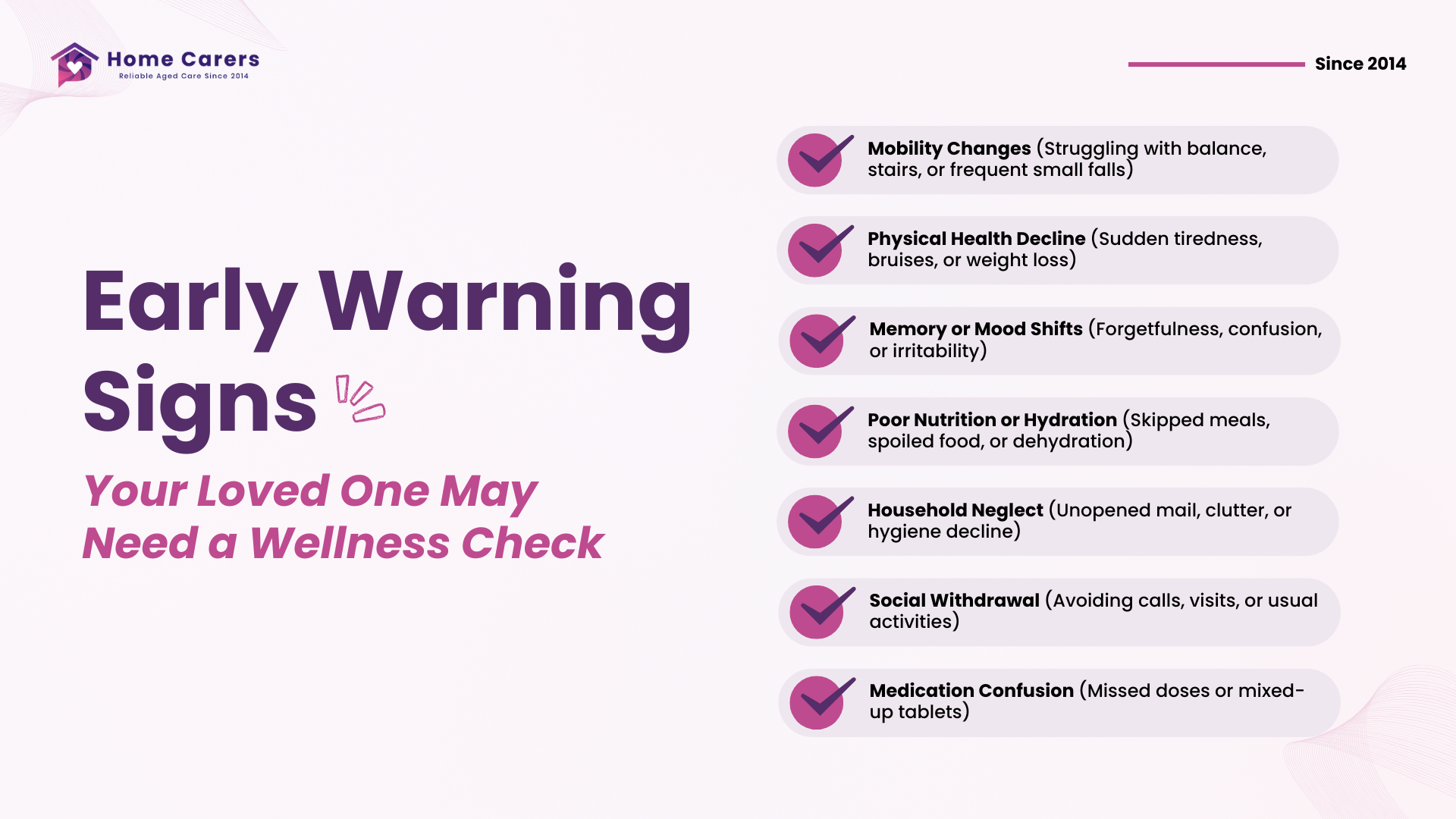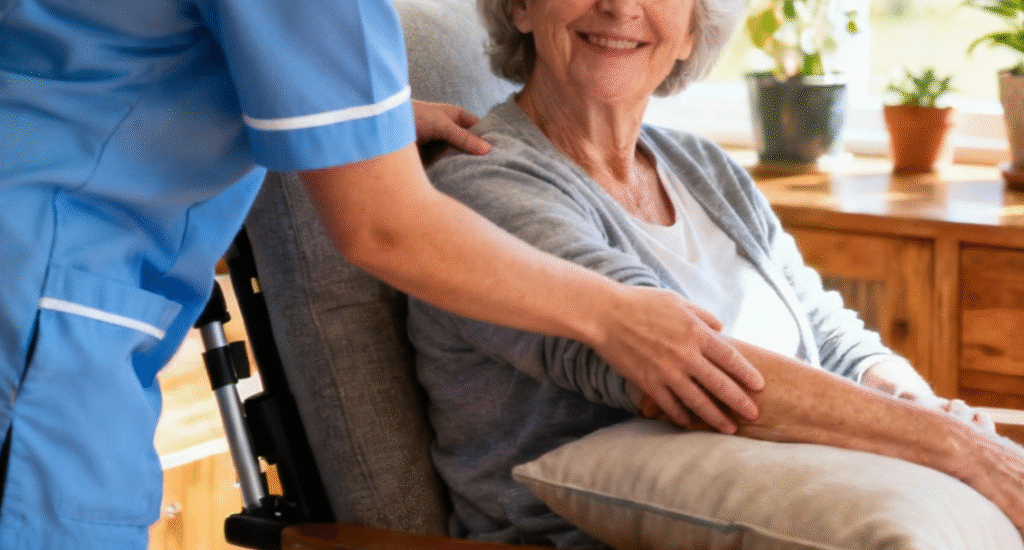.
For many families, changes in an older loved one’s health happen so slowly that they’re barely noticeable — until something serious occurs. A fall, a missed meal, or a hospital stay often becomes the moment everyone realises how much things have changed.
Regular wellness checks for older people in Christchurch, Tauranga, and across New Zealand can help identify these small changes before they turn into major concerns. By observing health, behaviour, and daily routines in a home setting, carers provide an early-warning system that helps older New Zealanders stay safe and independent.

Why Early Detection Matters?
Ageing doesn’t always happen in dramatic steps — it’s usually a collection of gradual shifts. Someone may seem just a little more tired, less social, or unsteady on their feet. Over time, those “little things” can add up to significant health risks.
Wellness checks offer a way to spot and respond to these changes early, ensuring older people receive the right support at the right time.
According to the Ministry of Health, early identification of health issues through community and home-based support can significantly reduce hospital admissions and improve quality of life for older adults.
Physical Signs Families Should Watch For
The first clues that an older person may need help are often physical. These can be subtle — but they are important indicators of how well someone is coping at home.
Common signs include:
- Unexplained bruises or frequent minor falls
- Difficulty getting up from chairs or climbing stairs
- Sudden weight loss or reduced appetite
- Signs of dehydration such as dry lips, dizziness, or confusion
- Changes in personal hygiene or clothing habits
- Unusual fatigue or weakness
Emotional and Behavioural Cues
Emotional changes can be just as revealing as physical ones. Older people sometimes struggle to express how they feel — or may not even realise that their behaviour has shifted.
Families should take note if a loved one:
- Withdraws from friends, hobbies, or visitors
- Becomes unusually anxious, irritable, or forgetful
- Repeats the same questions or stories frequently
- Seems confused about time or place
- Shows less interest in meals, personal care, or social outings
A carer who visits regularly can identify patterns of mood or cognitive change that might otherwise go unnoticed.
Environmental Red Flags in the Home
Sometimes, the environment tells the story better than words. During home visits, carers often notice clues that families might miss during short visits or phone calls.
These include:
- Expired or spoiled food in the refrigerator
- Unopened mail, unpaid bills, or misplaced items
- Burnt cookware or signs of forgotten appliances
- Medication packets opened incorrectly
- Increased clutter or tripping hazards
These may not seem critical on their own, but collectively they show when a person is struggling to manage their daily environment.
The Hidden Cost of Waiting Too Long
Many families delay arranging a wellness check because they don’t want to seem intrusive or overprotective. However, waiting too long can lead to avoidable crises.
A missed medication or a small fall might not seem serious, but these small events can quickly lead to hospitalisation or long-term decline. Regular observation helps identify issues early — allowing families to take practical steps such as adjusting routines, organising medication aids, or increasing social contact.
A wellness check is a simple, respectful way to gather this insight without invading a loved one’s privacy.
What Families Can Do This Week

Families play an essential role in early prevention. By staying observant and connected, they can support wellness checks and strengthen the safety net around their loved one.
Here are some simple actions to take this week:
- Visit at different times of day to see how energy and mood vary.
- Start gentle conversations about how they’ve been feeling or sleeping.
- Check food and medication supplies — are meals fresh, tablets in order?
- Watch for changes in walking, balance, or posture.
- Book a professional wellness check to create a clear baseline for ongoing monitoring.
These steps, combined with professional observation, help detect changes early and avoid future emergencies.
Families seeking broader support can also learn more about home help services or our wellness check programme.
Noticing the Little Things
Wellness checks are built on small details — a look, a pause, a change in voice, or a shift in energy. These quiet moments often reveal more than any formal test.
For families, paying attention to these details shows love in its truest form: care that notices. For carers, it’s about turning observation into action — ensuring older people stay healthy, confident, and independent for as long as possible.


